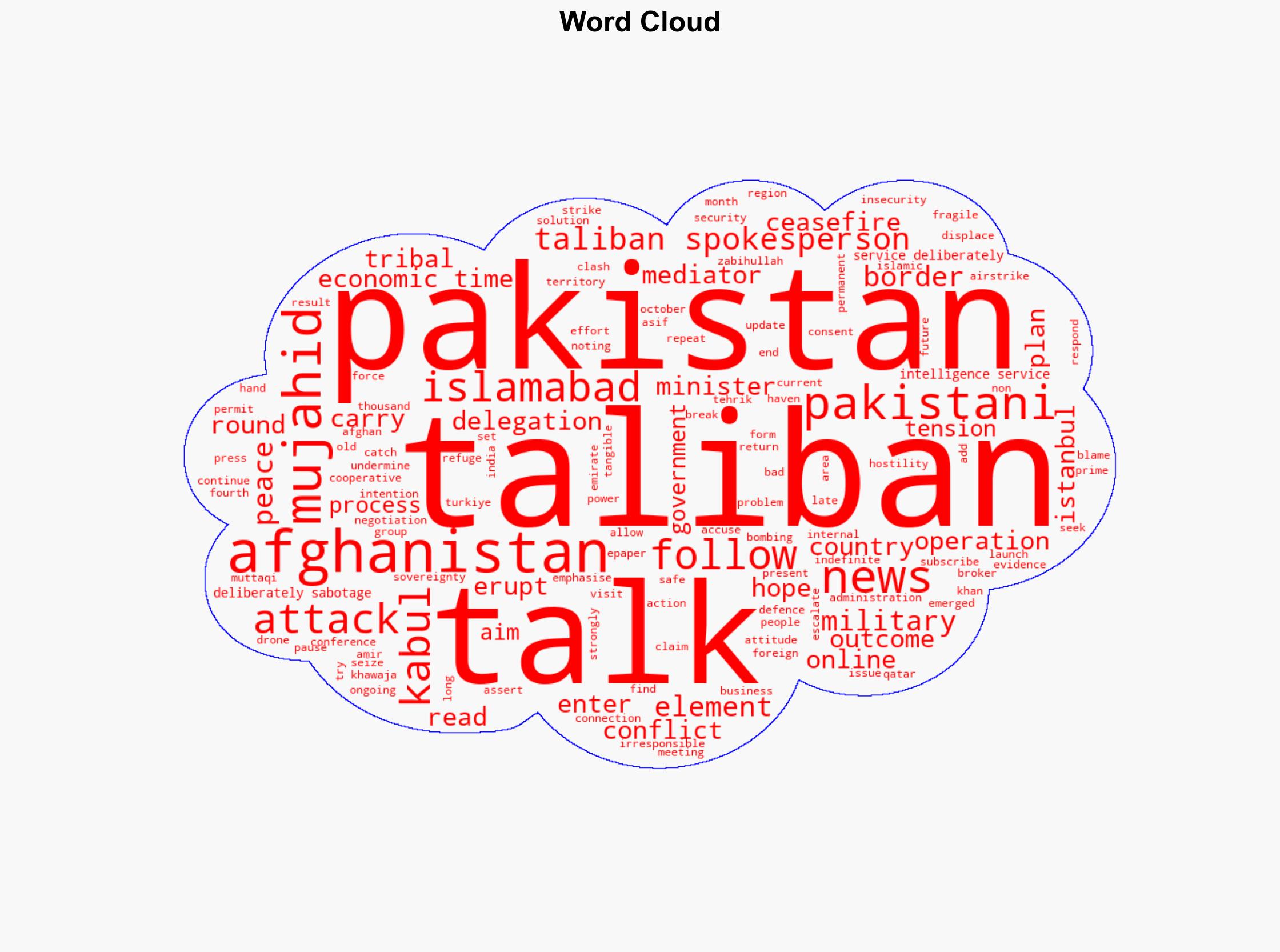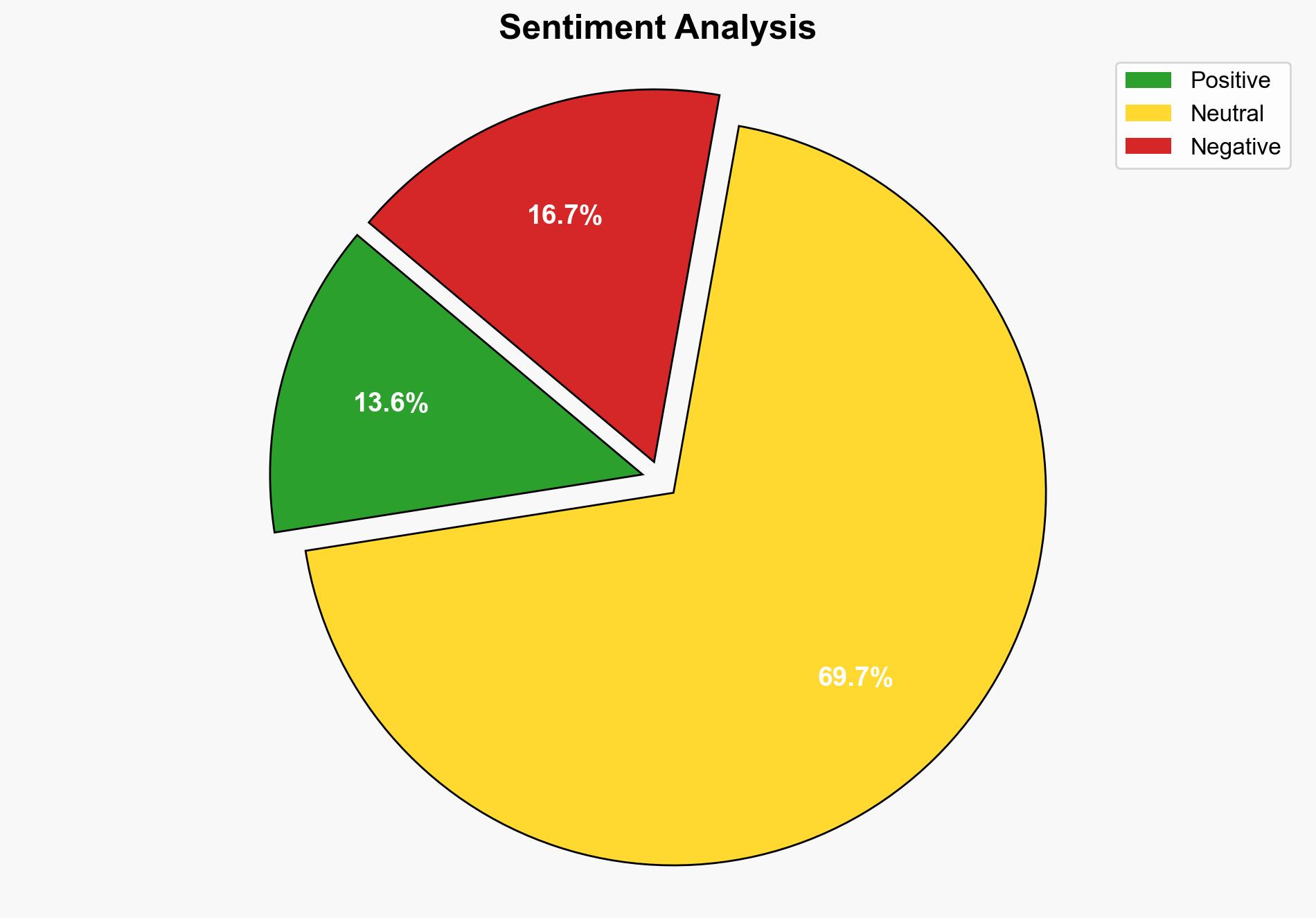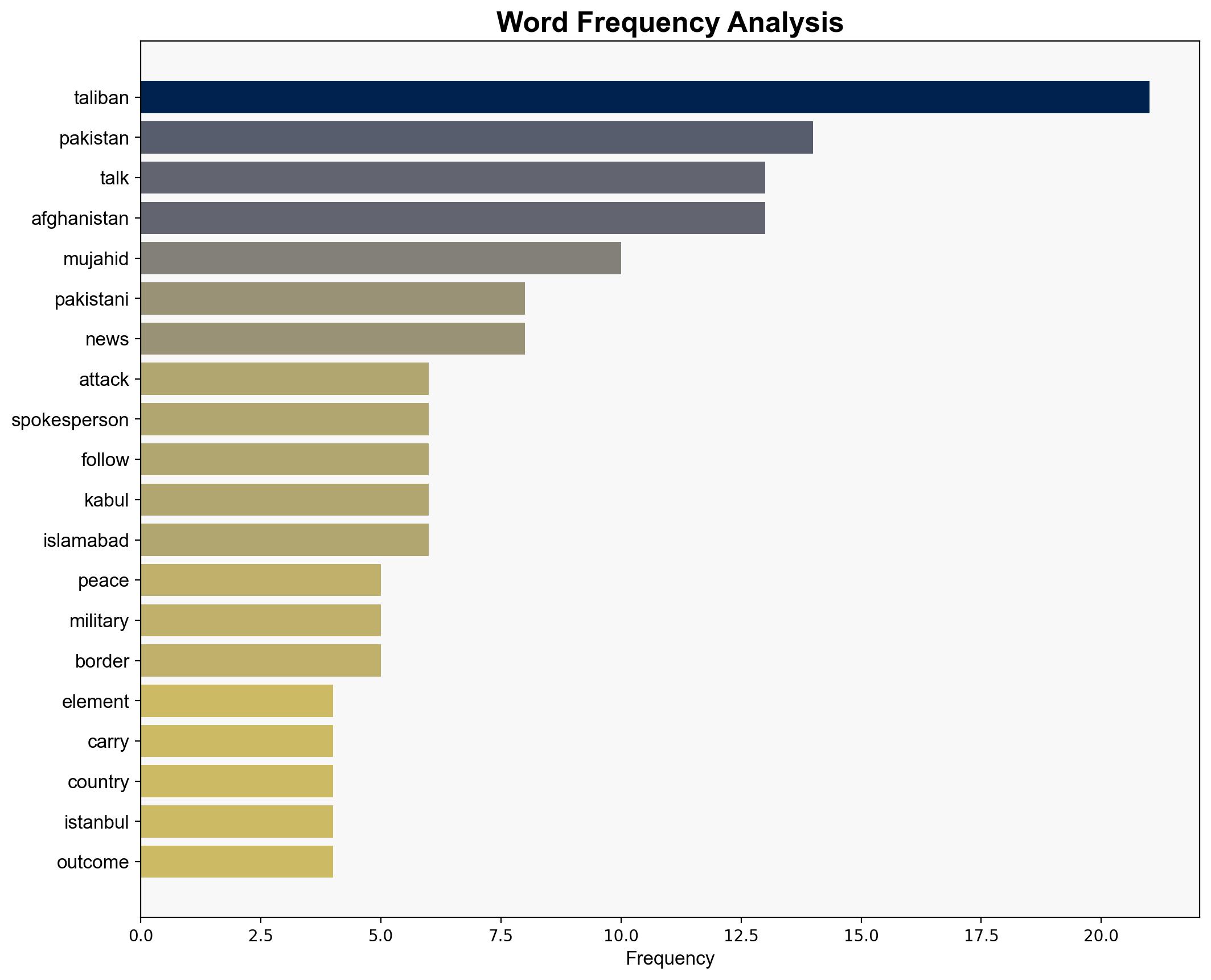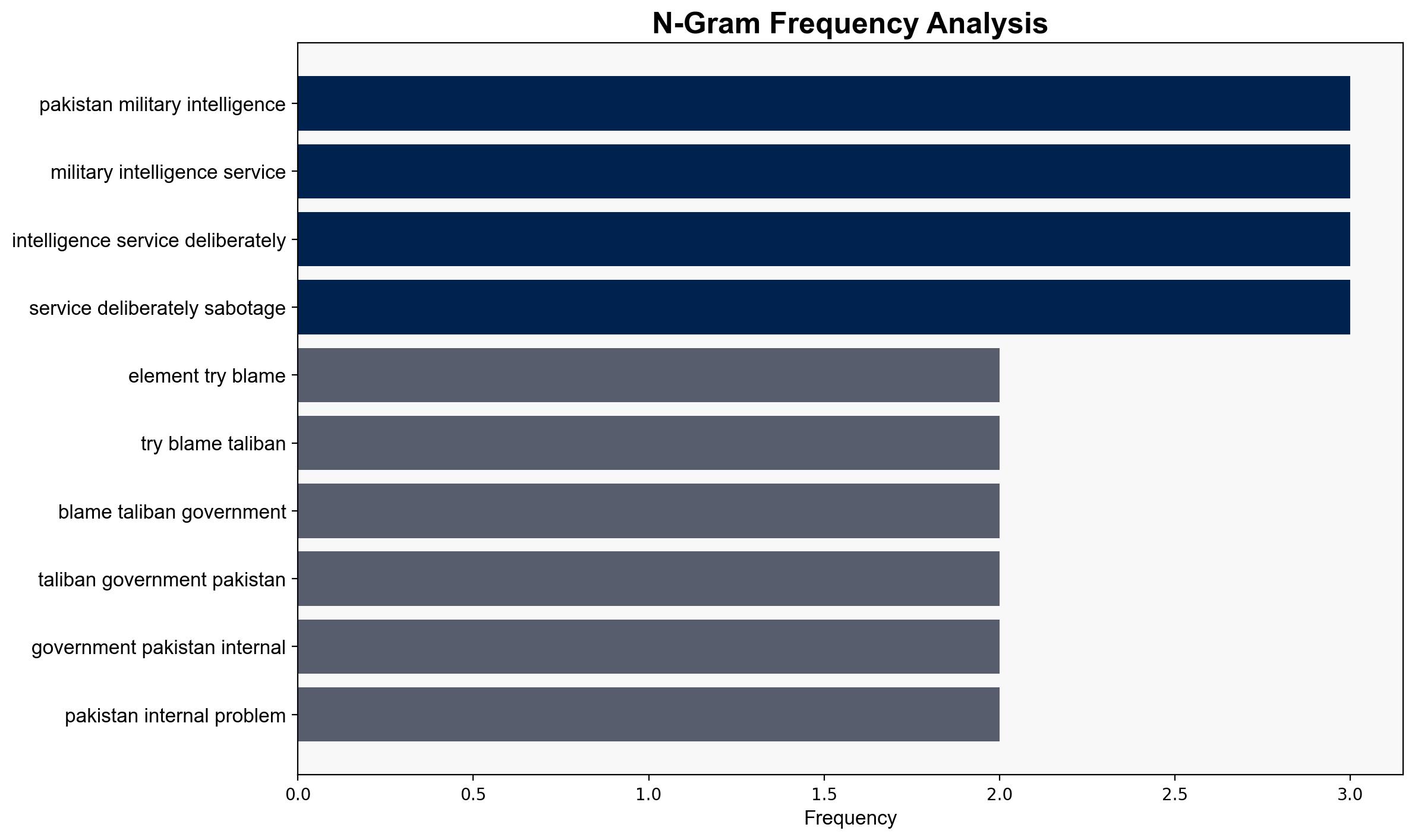Elements in Pak military deliberately ‘sabotaging’ Pak-Afghanistan peace talks Kabul – The Times of India
Published on: 2025-11-08
Intelligence Report: Elements in Pak military deliberately ‘sabotaging’ Pak-Afghanistan peace talks Kabul – The Times of India
1. BLUF (Bottom Line Up Front)
The most supported hypothesis is that certain factions within the Pakistani military and intelligence services are deliberately undermining the peace talks between Pakistan and Afghanistan. This is based on the consistent pattern of accusations and the lack of progress in negotiations. Confidence in this assessment is moderate due to the complexity of regional dynamics and potential biases in reporting. Recommended action includes diplomatic engagement with both Pakistan and Afghanistan to address underlying issues and establish a more transparent negotiation process.
2. Competing Hypotheses
1. **Hypothesis A**: Elements within the Pakistani military and intelligence services are deliberately sabotaging peace talks to maintain strategic leverage over Afghanistan and address internal security threats posed by groups like the Tehrik-i-Taliban Pakistan (TTP).
2. **Hypothesis B**: The breakdown in peace talks is primarily due to the Taliban’s unwillingness to address Pakistan’s security concerns, leading to a natural collapse of negotiations without deliberate sabotage by Pakistani elements.
Using Analysis of Competing Hypotheses (ACH), Hypothesis A is better supported by the evidence, including repeated accusations from the Taliban and the lack of tangible outcomes from the talks. Hypothesis B lacks corroborative evidence and relies heavily on assumptions about the Taliban’s negotiation stance.
3. Key Assumptions and Red Flags
– **Assumptions**: Hypothesis A assumes that the Pakistani military has a unified stance and that internal factions are acting independently. Hypothesis B assumes the Taliban’s negotiation position is inflexible and not influenced by external pressures.
– **Red Flags**: Potential bias in reporting from both Afghan and Pakistani sources. Lack of independent verification of claims made by both parties.
– **Blind Spots**: Limited insight into the internal decision-making processes of the Pakistani military and intelligence services.
4. Implications and Strategic Risks
– **Escalation Risk**: Continued breakdown of talks may lead to increased border tensions and potential military confrontations.
– **Geopolitical Impact**: Strained relations could affect regional stability and influence the strategic interests of other countries, including India and China.
– **Economic Consequences**: Prolonged conflict may disrupt trade routes and economic cooperation in the region.
5. Recommendations and Outlook
- Engage in multilateral diplomatic efforts involving key regional players to mediate and facilitate transparent dialogue.
- Encourage confidence-building measures between Pakistan and Afghanistan to reduce tensions.
- Scenario Projections:
- **Best Case**: Successful mediation leads to resumed talks and a sustainable peace agreement.
- **Worst Case**: Escalation into open conflict, further destabilizing the region.
- **Most Likely**: Continued stalemate with intermittent skirmishes and diplomatic engagements.
6. Key Individuals and Entities
– Zabihullah Mujahid
– Amir Khan Muttaqi
– Khawaja Asif
7. Thematic Tags
national security threats, cybersecurity, counter-terrorism, regional focus





